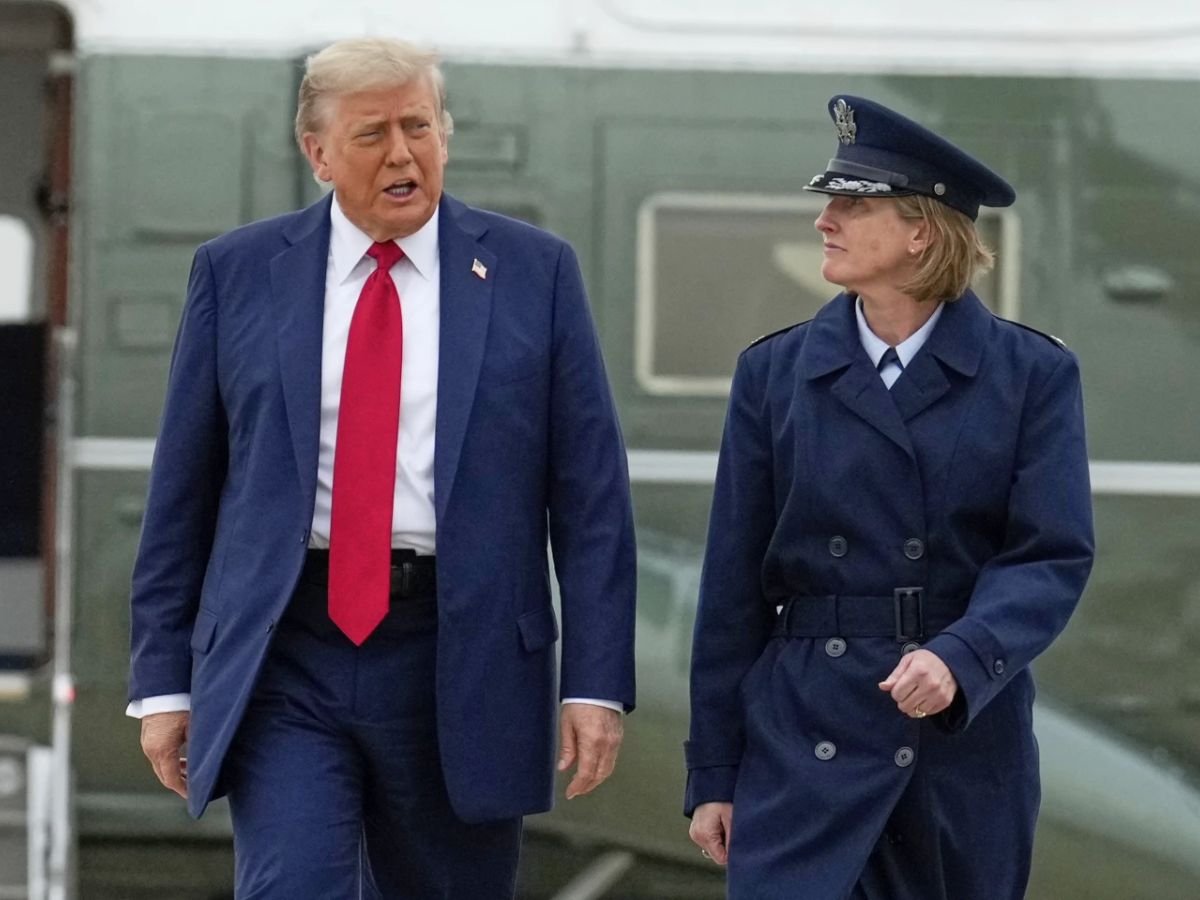President Donald Trump announced on Sunday that he has directed U.S. Immigration and Customs Enforcement (ICE) to prioritize deportations from Democratic-controlled cities, including Los Angeles, Chicago, and New York. This directive marks a significant escalation in the administration’s immigration enforcement efforts, which have already been met with widespread protests, according to a report published by The Associated Press.
Trump’s Directive: Aiming for ‘Largest Mass Deportation Program’
In a social media post, Trump called for ICE officials to “do all in their power to achieve the very important goal of delivering the single largest Mass Deportation Program in History.”
“To reach the goal, officials must expand efforts to detain and deport Illegal Aliens in America’s largest Cities, such as Los Angeles, Chicago, and New York, where Millions upon Millions of Illegal Aliens reside,” Trump wrote.
The US president’s comments came after weeks of increased immigration enforcement, with White House Deputy Chief of Staff Stephen Miller revealing that ICE aims to arrest at least 3,000 people a day—an increase from the previous daily average of 650 arrests during the first five months of Trump’s second term, as reported by the AP.
Increased Enforcement Amid Protests
Trump’s decision to focus on Democratic-run cities follows a wave of protests across the country, particularly in Los Angeles, Portland, and other urban centres. Demonstrations erupted in response to federal immigration raids, with large crowds opposing the administration’s policies on the treatment of undocumented immigrants.
The protests were part of the larger “no kings” movement, which coincided with Trump’s parade marking the 250th anniversary of the U.S. Army. While many protests remained peaceful, tensions escalated when police used tear gas and other crowd-control measures to disperse protesters in Los Angeles and Portland, the report said.
“If we didn’t have the National Guard on call and ready, they would rip Los Angeles apart,” Trump told reporters while departing for the Group of Seven summit in Alberta, Canada, suggesting that National Guard troops had prevented further unrest.
Immigration Raids’ Impact on Key Industries
As part of the directive, the Trump administration has taken steps to limit raids at farms, restaurants and hotels after the president expressed concern over the negative impact on industries that depend on undocumented workers.
A U.S. official familiar with the matter told AP that Trump’s policies, which have led to increased immigration enforcement, were affecting key sectors, including agriculture and hospitality.
Trump acknowledged this in a post on his Truth Social platform, writing Thursday that industries like hotels, agriculture, and leisure sectors had complained about the loss of “very aggressive policy on immigration,” which was removing long-time workers.
On the same day, ICE official Tatum King reportedly instructed regional leaders to halt investigations into the agriculture, restaurant, and hotel industries, particularly concerning meatpackers.
Political and Public Backlash
Trump’s push to expand deportations has sparked intense debate, with many critics accusing the administration of prioritising political aims over humanitarian concerns. The move to target Democratic-led cities, in particular, has been seen as an effort to energise his base ahead of the upcoming election.
The growing protests and civil unrest are also putting pressure on Trump’s immigration policies, as communities continue to mobilise against what they see as unfair and aggressive actions against immigrant populations.
ALSO READ: Iran Drafting Bill to Potentially Withdraw from Nuclear Non-Proliferation Treaty: Report



